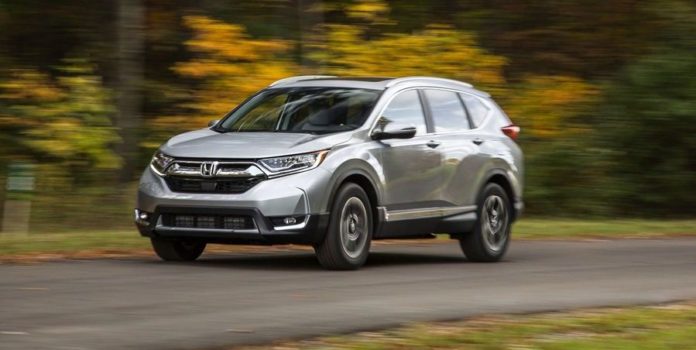- This week, the National Highway Traffic Safety Administration (NHTSA) upgraded a probe led by its Office of Defects Investigation (ODI) into the unexpected activation of the automated emergency braking system in the Honda Accord and Honda CR-V.
- According to the report, 31 out of nearly 1300 complaints filed with NHTSA to date included a crash, while 58 injuries were reported from 50 incidents.
- The ODI investigation covers an estimated 2,997,604 vehicles, split among the 2018–2022 Honda Accord, 2018–2022 Accord Hybrid, 2017–2022 Honda CR-V, and 2020–2022 CR-V Hybrid.
The National Highway Traffic Safety Administration (NHTSA) has upgraded a probe led by its Office of Defects Investigation (ODI) into the unexpected activation of the automated emergency braking system in nearly three million Honda Accord and Honda CR-V models. The name Honda gives to the technology is the Collision Mitigation Braking System (CMBS). At the time, the preliminary evaluation focused on 2017–2019 CR-V and 2018–2019 Accord vehicles.
The initial probe was opened on February 21, 2022, following reports of the system activating despite no apparent obstruction in the vehicle’s path, leading to “rapid vehicle deceleration which increases the risk of a collision.”
On Monday, April 15, NHTSA announced the ODI’s initial probe has been upgraded to an engineering analysis to broaden the scope of the investigation. According to NHTSA’s documents, the analysis now covers nearly three million Honda Accord, Accord Hybrid, CR-V, and CR-V Hybrid vehicles from 2017 through 2022 model years.
NHTSA documents reveal the ODI has received 1294 complaints of the CMBS system inadvertently activating, although that number could change. According to NHTSA, 31 of the reports of problems with the system included a crash. There have been 58 injuries reported from a total of 50 incidents.
NHTSA documents state that Honda provided information to ODI on the possible defect, while also suggesting that some customers may have had “an inadequate understanding of the CMBS and its limitations.” NHTSA’s website says an engineering analysis is generally concluded within 18 months and can lead to a recall.
Jack Fitzgerald’s love for cars stems from his as yet unshakable addiction to Formula 1.
After a brief stint as a detailer for a local dealership group in college, he knew he needed a more permanent way to drive all the new cars he couldn’t afford and decided to pursue a career in auto writing. By hounding his college professors at the University of Wisconsin-Milwaukee, he was able to travel Wisconsin seeking out stories in the auto world before landing his dream job at Car and Driver. His new goal is to delay the inevitable demise of his 2010 Volkswagen Golf.

